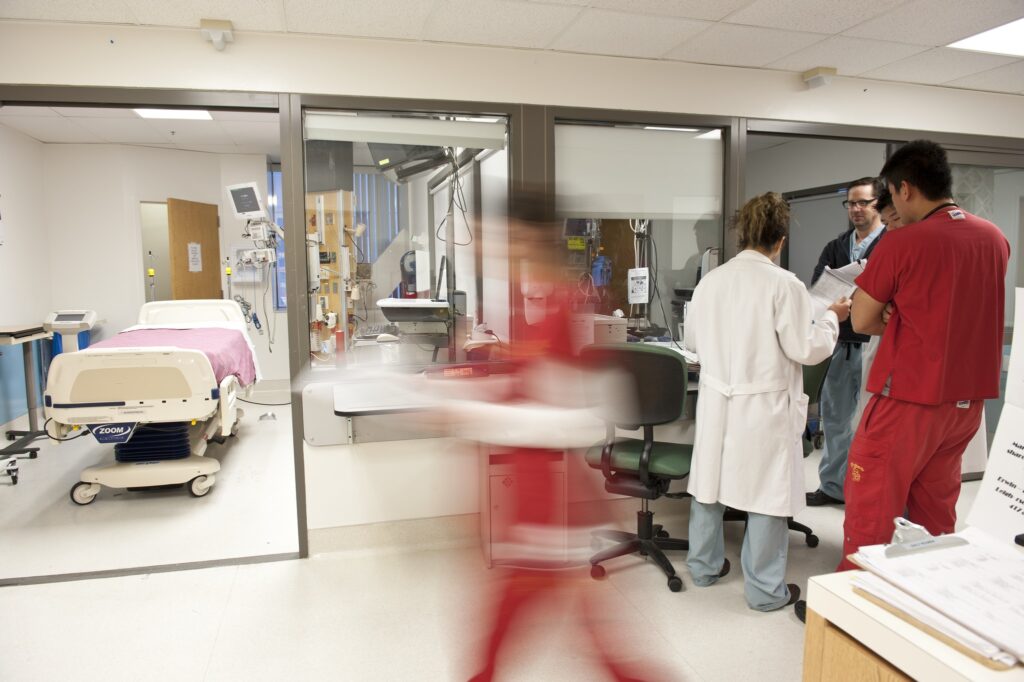When someone has an acute stroke, early access to specialized care is crucial. Whenever possible, experts recommend people receive medical help at a hospital with advanced stroke capability like a comprehensive stroke center (CSC).
A new study by researchers at the Keck School of Medicine of USC and the Schaeffer Center for Health Policy & Economics analyzed how long it took Los Angeles County emergency medical services to transport patients to CSCs, and found that traffic conditions affect consistent access, particularly in socioeconomically disadvantaged neighborhoods.
“While people in these areas might have a CSC close to them if you look at a map, their ability to get to the hospital may be determined by what hour they had the stroke,” says Dan Dworkis, MD, PhD, the study’s lead author and an emergency medicine physician for Keck Medicine. Dworkis is also an assistant professor of clinical emergency medicine at the Keck School of Medicine of USC. “CSCs have the latest therapies other hospitals may not, including potential life-saving treatments. For patients experiencing a stroke, access to these treatments is often critical. “
Measuring Access to Care
Los Angeles County has 16 CSCs spread across the county, which provide advanced stroke care often not available at other hospitals. Emergency medical services protocols in Los Angeles County specify that patients who are showing symptoms of certain acute stroke be transported to a CSC if the expected transport time is less than 30 minutes, even if a non-CSC hospital is closer.
Dworkis and colleagues Sarah Axeen, PhD, a fellow at the USC Schaeffer Center, and Sanjay Arora, MD, an emergency medicine physician at Keck Medicine and a clinical fellow at the USC Schaeffer Center, assessed the driving time to the county’s CSCs by picking central points within LA county’s 6,415 census block groups. Transit times were measured 12 times during non-holiday weekdays, including morning and evening rush hours, over the course of two weeks.
While access to CSCs has traditionally been broken down by areas that “always have access” and “never have access,” this study revealed a third category: areas that have only intermittent access to CSCs within 30 minutes, depending not on distance, but on shifting traffic conditions throughout the day.
Nearly 20 percent of the population has only intermittent access to CSCs, and many of these individuals live in the urban core of the city, including South Los Angeles and East Los Angeles. The researchers point out that these areas with limited CSC access have also historically been under resourced in a number of ways.
Across LA County, almost 80 percent of the population have access to a CSC within 30 minutes. Less than five percent have no access to a CSC. Those without access live in more rural areas, such as northeast Los Angeles County.
All told, transport time ranged from less than 1 minute to over 2 hours, with a median time of about 15 minutes.
Effectively Allocating Resources
The researchers hope these findings will influence how planners and public health professionals allocate resources and think about access. For example, based on their findings, South Los Angeles, with a population of 1.14 million, might have a greater need for advanced stroke care than northeast Los Angeles County, with only 479,000 residents.
“Our research demonstrates the value of incorporating data on traffic patterns when analyzing access to comprehensive stroke centers across the country,” says Axeen, who is also an assistant professor of research emergency medicine at the Keck School. “In the future, public health officials and policymakers across the country should consider traffic when deciding how to optimize the distribution of a region’s stroke resources.”
While the study was limited to Los Angeles County, the study authors believe their findings have relevance for other urban areas. Stroke is one of the leading causes of death in the United States, with a stroke death occurring approximately every four minutes.
